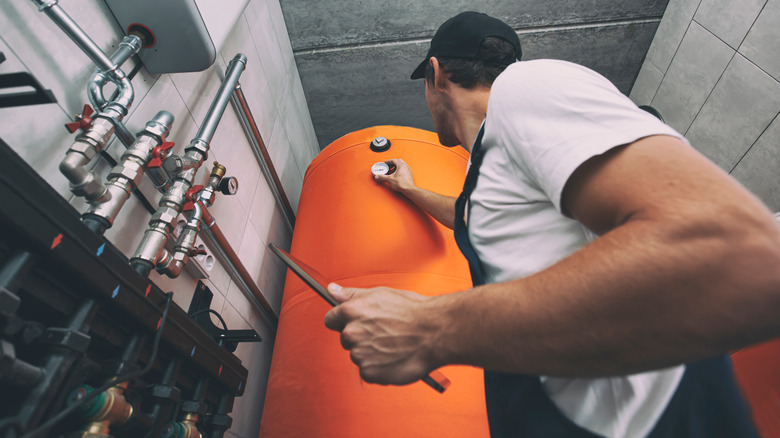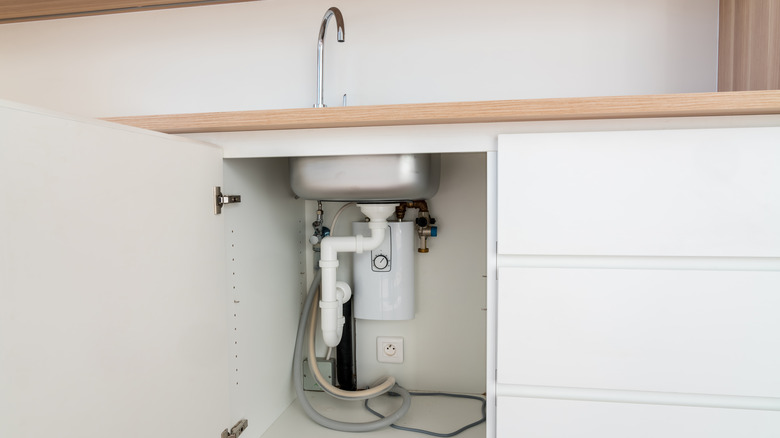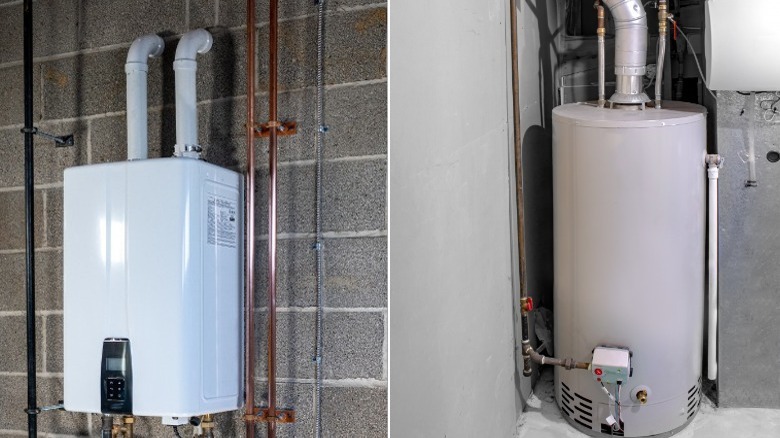Here's Where You Should Really Install A Water Heater In Your Home To Save Money
Many households spend between $400 and $600 per year on water heating alone, but the placement of your water heater could help you cut down that cost. When water has to travel a longer distance through your pipes, your water heater uses more energy to keep that water hot, and can put more strain on the heater. Not only does this rack up your electric bill, but while you're waiting for the water to warm up, cold water is being wasted as it runs down the drain, increasing your water bill as well. Installing your water heater closer to your kitchen and bathroom will cut down on the time it takes to heat up and the distance the water needs to travel, which can save you time and money.
Water heater placement is also crucial if there's a leak. Depending on where your water heater is, your carpet, drywall, furniture, or hardwood floors could sustain damage during a leak.
Water heater placement
Having your water heater in the basement, garage, or attic keeps it out of the way, but this may cause you to forget to inspect your heater regularly or take longer for you to notice if there's a leak. Further, if you use these areas as storage space, a leak could damage your belongings. Your heater might also be farther from your faucets. While there are generally regulations on where you can place a water heater (typically it must be against an external wall), these regulations only take basic safety into consideration and not cost-efficiency.
If the water heater is installed in an interior part of your home, like a small service closet, the water won't have to travel as far, and the heater will be easily accessible for maintenance. Though you may try to save money by forgoing yearly inspections and repairs, these services are less expensive than covering the costs of water damage or having to replace the water heater altogether. Note, there's a greater risk of damage if a leak occurs in a more central location of your home.
If you live in a place with harsh winters, installing your water heater inside your home will help it hold its temperature and keep your house warm as well, but if you reside in a warmer area, installing the heater in a garage might lower the cost of cooling.
Tankless vs. tank water heaters
While tankless water heaters are more expensive upfront, they can save money in the long run. Because tankless heaters are typically more energy-efficient, they can lower heating costs; however, these heaters aren't always capable of keeping up with the demands of using hot water in multiple places at one time, so you may need two of them. Tankless water heaters have a higher life span than heaters with tanks. While tankless versions can last for 20 years, tank heaters have a life expectancy of 10 to 15 years. Though they only cost a few hundred dollars to purchase, tank heaters may cause higher energy costs.
There are a lot of things to take into consideration when purchasing and placing a water heater. Every home is different, so it's important to think about where the water will be used and how much hot water is needed. No matter where you decide to install your water heater, keeping it closer to the kitchen and bathrooms can save you money.


